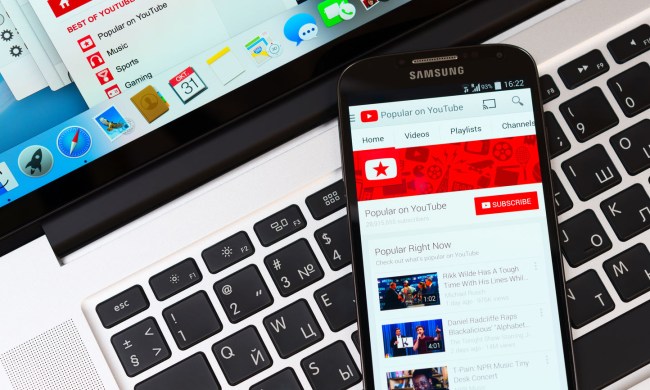 Four Google executives should not be held responsible for a video posted online that showed teenagers abusing an autistic youth in Turin, their lawyers argued Wednesday in an Italian court.
Four Google executives should not be held responsible for a video posted online that showed teenagers abusing an autistic youth in Turin, their lawyers argued Wednesday in an Italian court.
The executives are being tried in absentia in Milan — a case that has been painted as a battle for privacy rights by the prosecution and a threat to freedom of expression by Google.
Prosecutors have asked for sentences ranging from six months to one year in jail for the defendants, who are charged with defamation and violating privacy. The four deny wrongdoing. A verdict is expected in late January.
Under Italian law, “the person who uploads the video online must get permission from the person who is seen in the images, Google can’t do it,” defense lawyer Giuseppe Vaciago told The Associated Press. “It would be very difficult for any platform, not just Google, to acquire information on the subject filmed.”
The trial is being held behind closed doors. Vaciago spoke after Wednesday’s hearing in a telephone interview with The AP.
Prosecutors say the case is about enforcing Italy’s privacy laws as well as ensuring that large corporations do their utmost to block inappropriate content or quickly delete it.
The Mountain View, California, company says it considers the trial a threat to freedom on the Internet because it could force providers into an impossible task — prescreening the thousands of hours of footage uploaded every day onto Web sites like the Google-owned YouTube.
“The issue at stake in this courtroom affects all Internet companies and all Internet users,” Google said in a statement Wednesday. “(It is) akin to prosecuting mail service employees for hate speech letters sent in the post.”
The defendants are Google’s senior vice president and chief legal officer David Drummond, former chief financial officer George Reyes and global privacy counsel Peter Fleischer — for whom prosecutors requested a year in jail — and senior product marketing manager Arvind Desikan, for whom six months were asked.
None was involved with producing, uploading or viewing the video, according to the defense. Lawyers will continue their closing arguments on Dec. 23, and a ruling could come on Jan. 27.
Vivi Down, an advocacy group for people with Down syndrome, alerted prosecutors to the 2006 video showing an autistic student in Turin being beaten and insulted by bullies at school.
The video was uploaded on Google’s video site before the company’s 2006 acquisition of YouTube.
Google eventually took down the video, though the two sides disagree on how fast the company reacted to complaints. Thanks to the footage and Google’s cooperation, the four bullies were identified and sentenced to community service by a juvenile court.


